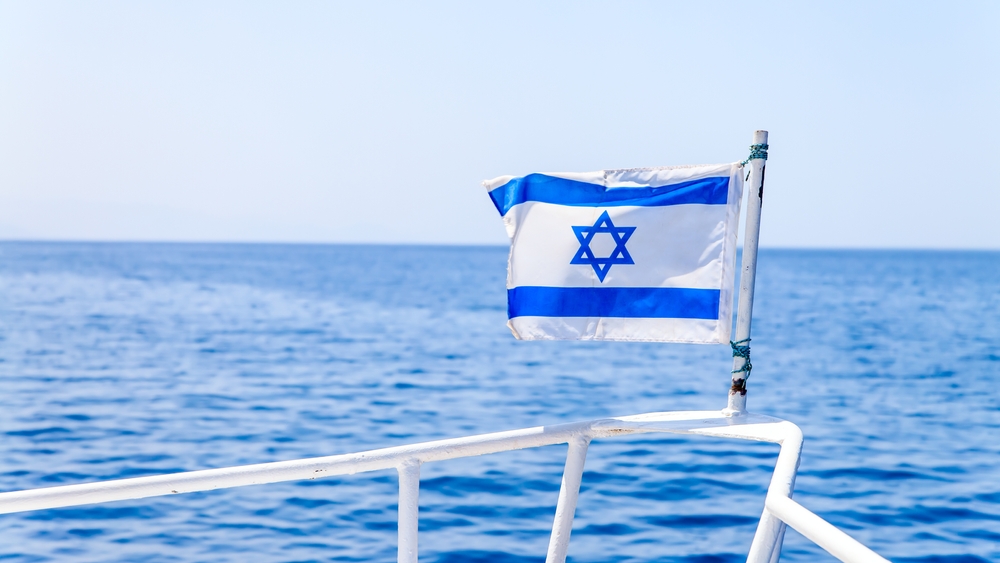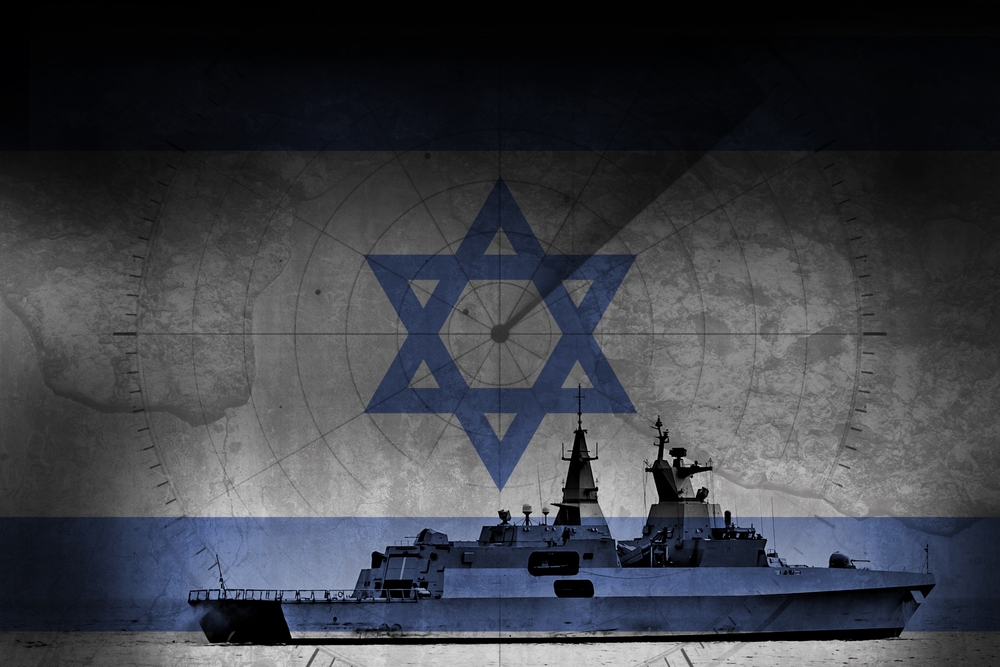
Turkey bars Israeli ships from its ports, restricts airspace

Turkey Deepens Rift with Israel by Cutting Trade and Transport Ties
Turkey has escalated its response to the war in Gaza by severing nearly all trade and transport links with Israel, marking a dramatic rupture in what was once a robust bilateral relationship. Foreign Minister Hakan Fidan announced that Israeli ships are now banned from Turkish ports, Turkish vessels are prohibited from docking in Israel, and flights tied to the Israeli government or transporting weapons are blocked from Turkish airspace.
These measures, layered on top of Ankara’s earlier suspension of bilateral trade worth $7 billion in 2023, represent one of the most forceful actions taken by a NATO member against Israel since the conflict began. For Turkey, the move is not only punitive but also symbolic—an attempt to send a message both at home and abroad that it is willing to go further than most of Israel’s critics.
Domestic Pressures and International Positioning
The decision reflects a convergence of pressures. Domestically, Turkish leaders have faced mounting anger over the humanitarian toll of Israel’s military campaign in Gaza. President Recep Tayyip Erdoğan has been particularly vocal, repeatedly accusing Israel of committing genocide, a charge that resonates strongly with his political base.
Internationally, Ankara sees an opening to elevate its role as a decisive actor where others, particularly Western allies, have confined themselves to statements of concern. By moving beyond rhetoric and imposing material costs, Turkey seeks to present itself as both a humanitarian defender and a regional power capable of bold, independent action.
A Strained Relationship Years in the Making
Although the war in Gaza has pushed Turkey–Israel relations to their lowest point in decades, tensions did not begin with the current conflict. The downward spiral can be traced back to 2010, when Israeli forces stormed a Turkish-led aid flotilla bound for Gaza, killing ten Turkish citizens. That episode shattered what had been a pragmatic alliance rooted in trade, military cooperation, and tourism.
In the years that followed, Ankara attempted to recalibrate its role in the region, at times engaging in cautious normalization with Israel—particularly in trade and energy. Yet mistrust never fully dissipated. Israeli military campaigns in Gaza drew sharp rebukes from Ankara, while Turkey’s support for Hamas and its consistent condemnation of Israeli policy deepened suspicion on the Israeli side.
The 2024 killing of Turkish-American activist Aysenur Ezgi Eygi by Israeli forces in the West Bank inflamed Turkish public opinion and underscored the fragility of any diplomatic thaw. By the time Israel’s latest war in Gaza erupted, the relationship was already precarious. What is striking now is not just the scale of Turkey’s measures but Ankara’s readiness to frame Israel as a direct threat to its own national interests rather than merely a difficult partner.
Turkey’s Escalating Measures Against Israel
The new restrictions represent the most comprehensive set of measures Ankara has introduced since fighting began. Fidan told parliament that shipping companies operating in Turkey must certify that their vessels are not linked to Israel or carrying military cargo destined for the country. Airlines face similar scrutiny, with Turkish airspace firmly closed to Israeli government or weapons-related flights.
At the same time, Ankara has emphasized its humanitarian role. Fidan confirmed that Turkey has presidential approval to conduct aid drops into Gaza, pending coordination with Jordan over air corridors. This dual approach—punitive sanctions on Israel alongside aid initiatives for Palestinians—illustrates Turkey’s attempt to balance hard diplomacy with soft power.
From Partnership to Breakdown
Only two decades ago, Turkey and Israel maintained one of the Middle East’s more unusual partnerships. Their cooperation spanned military exercises, energy trade, and a thriving tourism industry. Today, that legacy lies in ruins. The trajectory shifted decisively after the 2010 flotilla raid, but the erosion has been gradual, punctuated by cycles of partial reconciliation and renewed crisis.
Turkey’s latest actions stand apart precisely because they go further than symbolic condemnation. They represent a point of no return: a transformation from strained dialogue into near-total disengagement. Few practical bridges remain between the two societies, and those that do—such as tourism—are now under significant strain.
Humanitarian and Global Messaging
Ankara has been careful to present its measures as part of a wider humanitarian response. Erdoğan and other Turkish leaders argue that silence from the international community normalizes violations of international law. By cutting trade and transport while preparing humanitarian operations, Ankara aims to contrast its assertive stance with what it portrays as the passive responses of the United States and the European Union.
This framing also helps align Turkey with governments in the Global South that have criticized Western support for Israel. For Ankara, the move is not only about solidarity with Palestinians but also about expanding its diplomatic reach beyond the Middle East, building credibility as a leader willing to act where others hesitate.
Security Calculations Beyond Gaza
Turkish officials increasingly argue that Israel’s actions represent not just a localized conflict but part of a broader destabilizing pattern in the region. Ankara has accused Israel of targeting infrastructure in Syria and undermining fragile post-war reconstruction. Israeli strikes in neighboring states are framed as potential triggers for wider escalation—one that could eventually spill into Turkey’s own security environment.
By embedding its Gaza policy within this broader security framework, Turkey signals that it is not acting only on moral grounds. Rather, it is positioning Israel as a strategic risk to regional stability and, by extension, to Turkish national security. This argument resonates with a domestic audience that sees foreign policy as inseparable from homeland security.
Consequences for Israel’s Standing
The rupture with Turkey hits Israel in areas that once served as stabilizing links despite political disputes. Trade, tourism, and transport routes functioned as quiet channels of connection. Their loss not only underscores the severity of the break but also amplifies Israel’s growing sense of international isolation.
Political analysts note that Turkey’s action carries particular weight because it is a NATO member. While Israel continues to enjoy strong backing from the United States and some European allies, Ankara’s decision demonstrates that hard restrictions—not just verbal condemnation—are possible from major regional players. Other governments may now feel emboldened to adopt similar measures, further tightening the diplomatic and economic vise on Israel.
A Defining Moment for Regional Politics
Turkey’s rupture with Israel illustrates how middle powers are increasingly willing to act unilaterally when international institutions fail to deliver meaningful accountability. By wielding trade, airspace, and port closures as foreign policy tools, Ankara has shown that economic and logistical levers can carry as much weight as diplomatic speeches or military maneuvers.
The decision also advances Erdoğan’s ambition to define Turkey as a regional leader—one prepared to defend both humanitarian principles and national security through decisive action. Whether or not these measures alter Israel’s course in Gaza, they set a precedent for how states may respond when diplomacy and condemnation prove insufficient.
The key takeaway is stark: relations between Turkey and Israel are no longer merely strained; they are fundamentally broken. This recalibration will shape not only bilateral ties but also the wider balance of alliances in the Middle East, where conflicts now ripple through trade routes, ports, and air corridors as much as through conventional battlefields.
News in the same category


Why Sleeping in Socks Might Be the Secret to Better Sleep

The World’s Strongest Animal Isn’t an Elephant or Bear

Your Smartphone Battery’s Lifespan Depends on How You Charge It—Here’s How to Do It Right

How to Extend Your Smartphone Battery’s Lifespan

Hotel Room Red Flags You Should Never Ignore

Trump Announces Eye-Watering $200,000,000 White House Renovation Plans

Man develops 'pork worms' in his brain after years of doing this specific cooking habit

Woman who d::ied for 24 minutes before being brought back to life details exactly how it felt

‘Healthy Man’ Diagnosed With Cancer After Noticing Dog’s Bizarre Behavior Around Him

Nearly 64% of All Bottled Water in America Is Just Tap Water. These Are the Brands.

The difference between the spirit of a loved one and other forces

One Swedish man replied to all those who wondered how people live in such tiny apartments by showing his own

Expert issues warning to couples as 'menodivorce' becomes increasingly common in relationships

Christina Applegate reveals how her MS diagnosis has ‘broken’ her 14-year-old daughter Sadie

How True Love Shows Itself During Intimacy

‘Miracle’ Moment: Cross Necklace Stops Bullet and Saves Man’s Life

Christian Bale Built $22 Million Foster Care Village in California

Emma Stone opens up about coping with fame after revealing she would like to be called by real name
News Post

The difference between the spirit of a loved one and other forces

Your Heart Emits a Magnetic Field 100x Stronger Than Your Brain – And It Can Be Detected 3 Feet Beyond Your Body

🌱 Discover Papaya Seeds: Nature’s Tiny Powerhouse for Total Wellness

3 Home Remedies to get rid of Skin Tags – Skin Tag Removal

Homemade Herbal Bath Powder For Clear Skin: Bridal Skincare Ubtan

Mix Baby Oil with Vaseline: The Simple Skincare Trick for Youthful, Wrinkle-Free Skin

How Your Body Secretly Tells You You're Stressed

New Study Shows That Sitting in Silence for Only Two Hours Can Trigger Significant Growth in New Brain Cells

Foods That Can Quietly Drain Calcium From Your Body

Just Simply Looking at a Sick Person Is Enough to Trigger Your Immune Response, Study Shows

Scientists Discover an “Off Switch” for Cholesterol — And It Could Save Millions of Lives

Why Does Your Eye Twitch Randomly? An Eye Doctor Explains

Think Twice Before Pairing: 6 Foods You Shouldn’t Eat with Eggs

The Magic of Lemon Juice and Activated Charcoal: Natural DIY Solutions for Skin and Teeth

Open Pores To Glass Skin Transformation

Here’s how much the Powerball winner will owe in taxes after the $1.8 billion jackpot
The Powerball jackpot has climbed to an astronomical $1.8 billion, the second-largest prize in U.S. history. But before the lucky winner can celebrate a life of luxury, the taxman will be waiting with a massive bill that could drain hundreds of millions f

Casino Scandal: Woman Denied £33 Million Jackpot and Offered a Steak Dinner Instead
A New York woman’s dream of instant fortune turned into a nightmare after a slot machine declared her the winner of nearly £33 million—only for the casino to claim it was a “malfunction” and offer her a steak dinner as compensation.

Look-alike athletes who even share the same name took DNA test to see if they’re actually related
It sounds like the plot of a sports comedy, but it actually happened. Two professional baseball players who looked like mirror images of each other — and even shared the exact same name — decided to take a DNA test to uncover whether fate had made the

Keira Knightley had to go through years of therapy to get over trauma after starring in "Pirates of the Caribbean"
The role that turned Keira Knightley into a global star also came with a heavy price. Behind the glamour of Hollywood red carpets, she silently battled trauma, anxiety, and the crushing weight of fame as a teenager.
